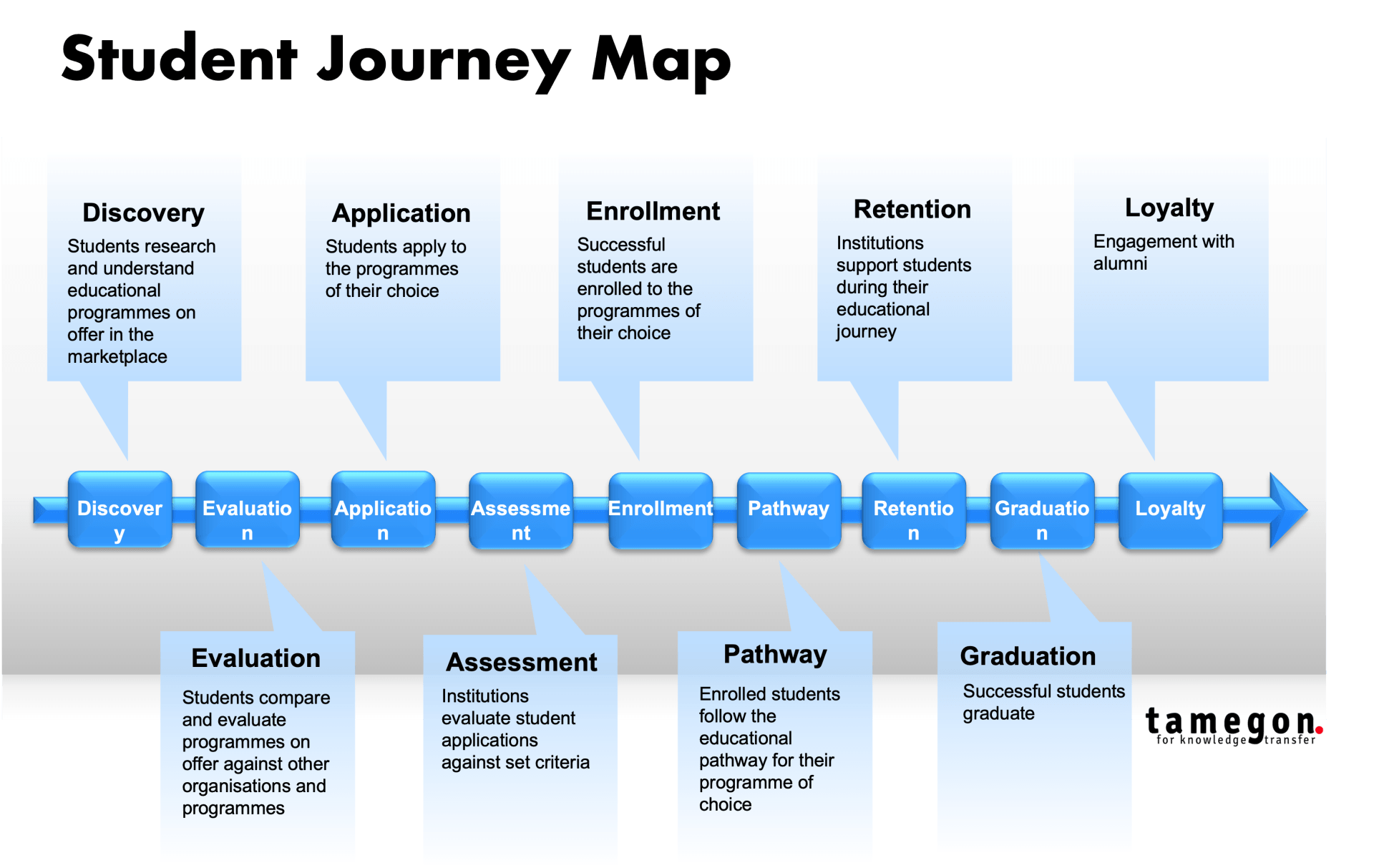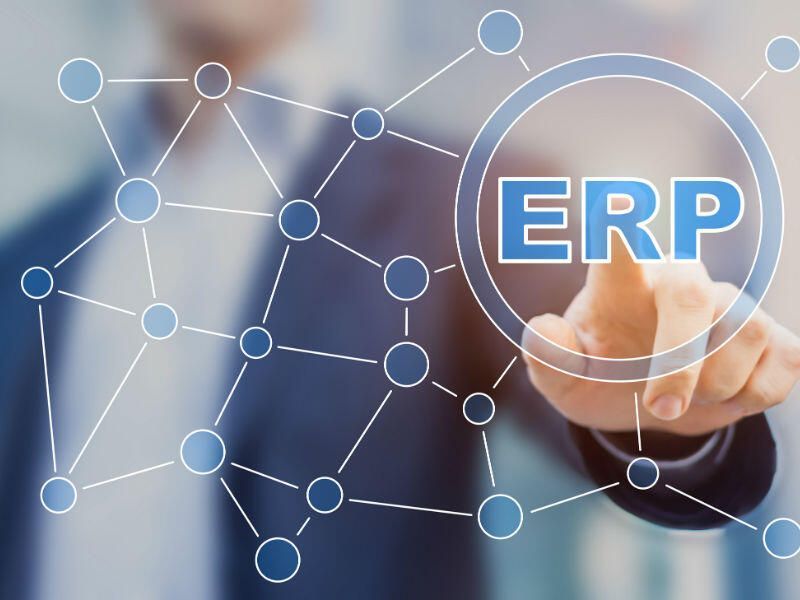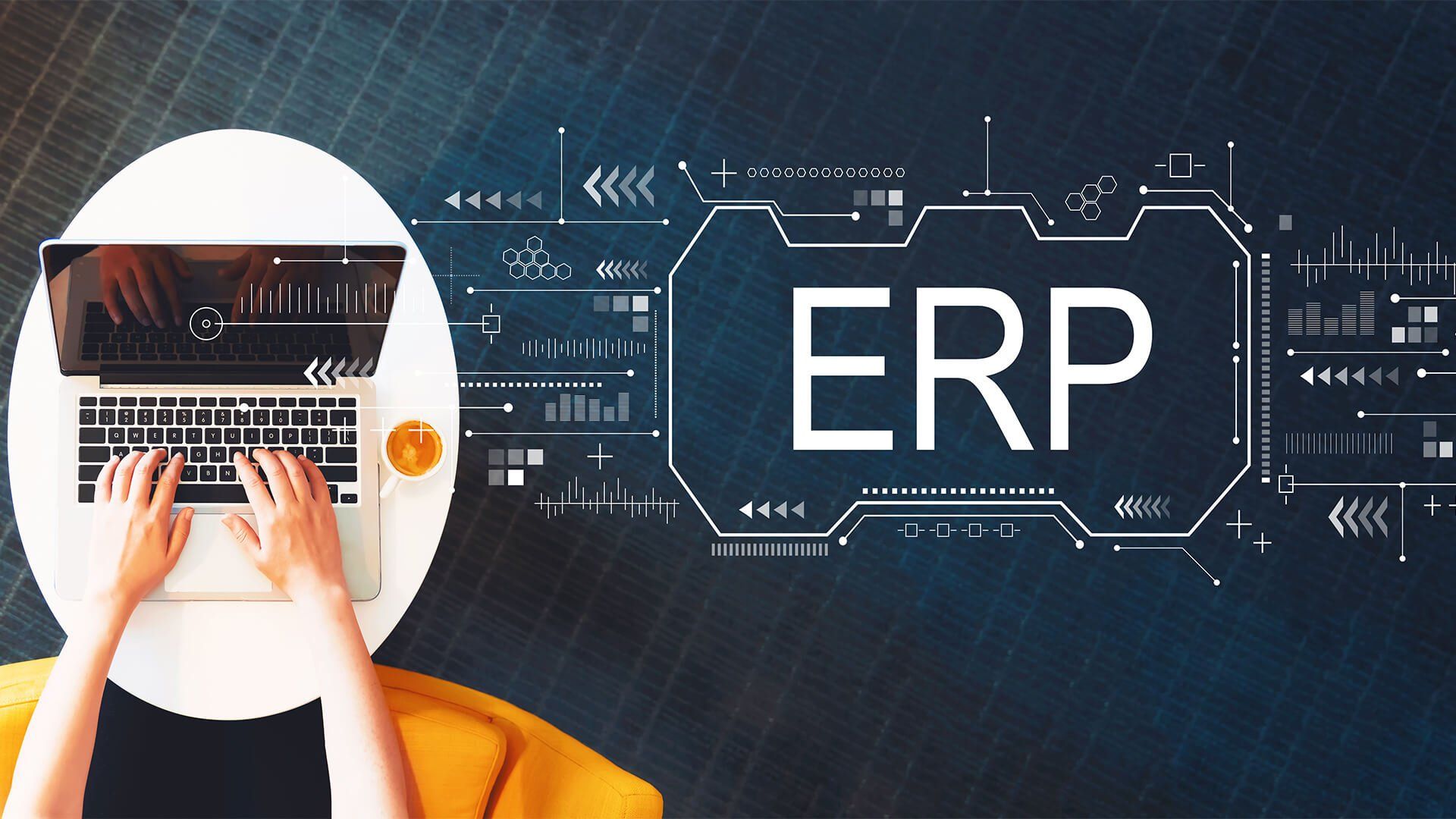ERP systems in Higher Education - Have we automated our student journey enough? Should we?
Dr Costas Chryssou
February 14, 2022
tamegon Innovation and Growth Advisory Firm
Technology has been changing the way education is being delivered for some time now. In addition to online courses, new learning techniques and online learning management systems, the management of Higher Education (HE) institutions themselves has been revolutionised through the use of Enterprise Resource Planning (ERP) systems. The use of ERP software is not a new concept; it has been widely used to ease management processes and improve operations and transparency in many industries, before its increasing popularity in the HE sector. ERP systems, particularly based on the cloud, can offer significant cost savings and allow the development and pursuit of new business models under a general digital transformation path for educational institutions.

Compared to the traditional method of management, the use of an ERP system in education can assist organisations to increase productivity, enhance and streamline internal operations and processes such as HR, finance, procurement, learning management systems, library resource and student attendance in addition to enhancing the student journey and student experience, important considerations for all HE organisations in the current competitive environment.
Several benefits of using an ERP system in HE settings are summarised below,
- Automation of administrative functions and processes - the ability to develop operational efficiencies by seamlessly integrating various basic functions within HE institutions such as marketing, student recruitment and management of student applications, student administration, finance, and the overall educational pathway journey.
- Cost-effectiveness - by moving all operations online, organisations are able to reap significant financial benefits by reducing administrative manpower through automating and streamlining processes and procedures while at the same time achieve important responsiveness to student needs and demands, thus hugely contributing to the overall student experience.
- Enhanced strategic decision-making capability - by collecting and analysing large amounts of current and historic data across the student journey, organisations can inform their decision-making processes across all functions.
- Data security - with advanced data protection capabilities and business continuity advantages, when particularly the system is based on the cloud; satisfying security and confidentiality requirements (e.g. GDPR).
- Enhanced service offering to students and staff - by offering to students and faculty service portals with advanced customisation capability satisfying their unique requirements and enhancing their organisational experience and interaction.
Of course there will always be limitations. Some of the ERP limitations are:
- Cost of implementation and customisation - it can be significant through the planning and implementation phases, but particularly because of ongoing customisation, unless HEIs develop internal expertise developing their own driven customisations and change management processes.
- Usability - the use of the system at its full capacity and capability can be difficult especially at the early stages; this is particularly the case due to resistance of adoption for systems with complicated user interfaces. Appropriate training and time needs to be invested by the HEI management to bring new staff up to speed quickly, and existing staff to explore and use new system functionalities which will enable them to continue offering advanced services to students and staff.
Student journey automation
From our recent experience leading the implementation of an ERP system in an HE organisation, the benefits of student journey automation are unprecedented. The use of an appropriate ERP system brings many advantages across all stages and touch-points between the HEI and current or prospective students
- Supporting brand awareness and competitive positioning - to establish their brand as places that students want to join, to showcase their unique academic programmes and other advantages of the whole student experience. Although some manual marketing activities are still necessary, marketing automation enables outreach teams to easily develop marketing campaigns across all social media platforms, capture prospects and leads from several channels and automate communication. Data captured, together with analytics from the website itself, provide important information to marketing and student recruitment teams about responses to marketing messages, how new academic programmes are received and other university endeavours which can further inform academic and strategic decisions of the organisation.
- Student recruitment - to convert interested prospective students to applicants through "personalising" their communication messages and addressing their unique interests, concerns and aspirations - capitalising on the data gathered during previous steps. HEIs can build on marketing automation across all digital platforms, identify the most engaged prospective students who are most likely to apply through more personalised messages and information and easily target them enhancing conversion rates.
- Application, evaluation, admission - to keep the student application process as short and as efficient as possible by automating messages, reminding some applicants to complete and submit their application on time and keeping them excited about student life and other services which are pivotal to ensure that students prefer a particular HEI over another. Internally, ERP systems underpin standardised, streamlined processes between the academic and administrative teams reducing the time to make an offer. ERP systems provide many useful automation tools such as web bots that can provide real time information to applicants about their application status saving crucial time from the recruitment and admissions teams supporting lean operations.
- Academic pathway - to make the academic journey for each student smooth and unique, supporting them to take advantage of all the opportunities presented to them through the years, making them aware of extra curricular activities, student clubs and societies, while maintaining records of their academic journey in terms of courses, grades and tutors' support reducing the administrative load and keeping the university lean while maximising added value to each student and academic staff.
- Alumni - to continue engaging with their graduates by personalised communication showcasing relevant activities to be engaged with as well as seeking their support and expertise to assist existing students.
Automation - With the help of an ERP solution, automation of functions and processes allows HEIs to concentrate more on learning and teaching.
The main value of automation though for any educational institution is the allowance of additional interaction time among students and faculty. Automation of repetitive tasks and mundane processes as well as continuous monitoring of student attendance, academic progress and performance allows for early identification of potential learning gaps, giving more time to faculty to design-in some degree of individualised teaching, adding value to the student academic journey.
Find out how our digital transformation services can support Higher Education Institutions to add value to their students, academic, and administration staff here.
Access other relevant articles
here.

Costas Chryssou
MBA, PhD
Founder and Managing Director
Sign up for our
articles
Sign up to our newsletter











